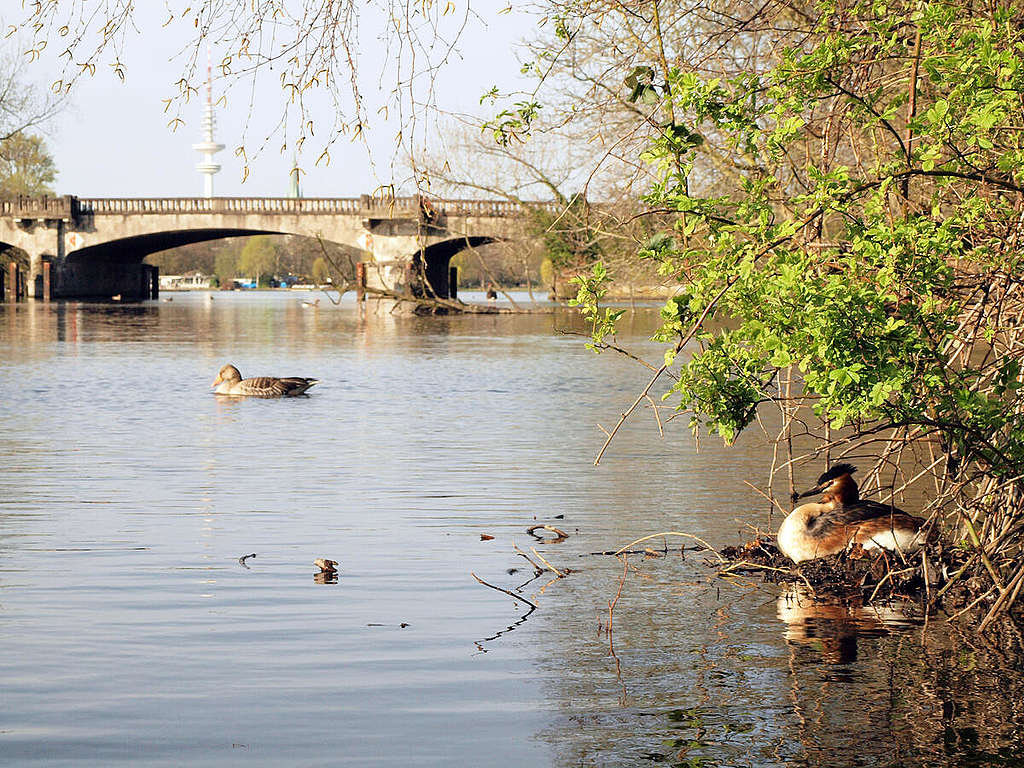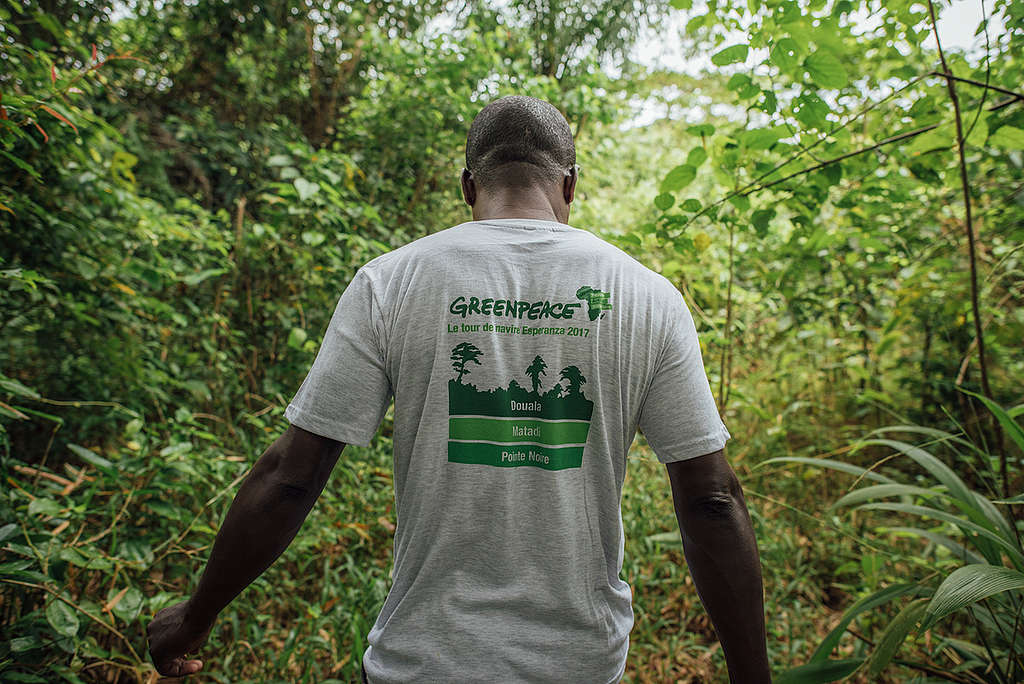Wishing for a better 2021 is not enough – ordinary citizens and decision makers must take action to protect our forests, biodiversity and peoples.
2020 – ouff some may say! But can we really congratulate ourselves and say we’ve done it? 2020 came with a lot of unexpected challenges for us as individuals and for our communities. It came with unbelievable pain for people who have turned sick, who lost their loved ones, their business or their job. At the same time, in 2020 we rediscovered another way of living. We realised it was possible to stay alive without destroying mother nature.
COVID-19 forced all of us to adapt without much of a choice. Beyond deaths and economic pain, it has caused divorce to finance loss. But while we were adapting, mother nature got a break, with the reduction of pollution from CO2 and SO2 emission reduction, less vehicles on the roads and planes in the sky during lockdowns and in my country – Cameroon – loggers were complaining they can’t trash forests as much as they did before.

None of the usual predictors of the stock exchange could anticipate 2020. This year did not follow any prediction or plan. The world was caught in all its weakness facing this pandemic. None of our experts were really prepared for this. Yet I was amazed by the remarkable adaptation and sacrifice people were able to make as COVID19 ravaged their families and communities.
If you make it alive throughout 2020 and 2021 thank God – because according to Johns Hopkins center, already about 2,032,180 worldwide were not able to make it. For those of us who survived 2020 (and the very dreadful first weeks of 2021), let us take this as an opportunity to live differently and connect with mother nature.
COVID-19, deforestation and communities land grabbing adaptation
The pandemic has turned everything in our lives on our heads. Some scientists and others around me began to ask critical questions: “What is agribusiness and forest exploitation all about? Rather than an economic solution to a country like Cameroon, might they not be partly to blame for this pandemic? And I asked myself, what is the importance of the profits made by land grabbers, loggers and forest criminals if they find themselves at about the same risk of the climate and biodiversity crises as the rest of us, a risk that results in part from their actions?
And finally the science confirms that destroying forests and their biodiversity can be devastating at the individual level and for the planet’s climate and communities living in it. Scientists have demonstrated the link between deforestation and emergence of new animal borne diseases (zoonotic diseases) such as COVID-19. For the sake of humanity and to keep the next virus away, let us learn from 2020 and make 2021 a year of protecting the forests.
2020 was a devastating year in its global dimensions, but forest peoples have been having devastating years for a long time now, due to investors destroying their habitat using false promises that leave Indigenous People and local communities poorer and deprived of their natural heritage. In Cameroon, neither the pandemic nor civil society’s resistance was able to stop one of Africa’s biggest palm oil projects from moving forward. For such communities, every year is like 2020, ever since the colonial and postcolonial exploitation of our forests. For them as well we must protect our tropical forests.
2020 was also a catastrophic year for communities across Africa, suffering from extreme weather events, made much worse as a result of human (anthropogenic) activities. Floods and droughts are certainly made worse not just because of burning fossil fuels, but because trees are being uprooted on a daily basis, making absorption of rainwater much harder. Also for communities in cities and villages affected by extreme weather, let’s promise to ourselves to do more in 2021 for our forests.
Hope for a better future through collective actions
I do hope that just as 2020 has resulted in a stunning mosaic of stories of creativity, resilience, and dignity amid an unprecedented health crisis, the same energy will be invested in 2021 to protect our forests and communities, whether from Lokolama in DRC to the Baka in Cameroon to avoid possible future pandemic for better future.
2020 made clear that we don’t need more deforestation, more land grabbing, more corrupt and greedy industries inside our rainforest. We need more change and transformation of the current broken system based on logging! We need more solidarity! We need to make decisions to protect forests and its rich biodiversity and community living in and around. We need Land tenure reform in CB to be at the base, with strong and full recognition of communities’ customary land rights. By doing so we are also protecting ourselves. We need more solidarity effort with forest communities to protect their land, we need to think more of them and the planet than our selfish interest. Let’s replace deep selfish profit, colonialisation, slavery, war, sur-exploitation, sadness, and worry, with action to protect nature and it people. But also with a change of heart that is willing of reconciliation, good values, support of one another and positive impact.
I believe we can all be part of the solution in 2021 and the years ahead. For the sake of forest people and the whole of humanity, join me in taking a pledge to be an agent of change and preserve the world from another pandemic by taking the necessary steps to permanently protect nature and those who depend on it. In many ways, this means all of us. Greenpeace Africa’s forest campaign is determined to promote participatory mapping, as well as inclusive and participatory land-use planning led by local communities. For those of us blessed enough to have survived 2020, 2021 gives us an opportunity to be part of the solution and help prevent the next pandemic. Will you join me?
YOU CAN JOIN OR DONATE TO THE GREENPEACE AFRICA FOREST CAMPAIGN AND PROTECT THE CONGO BASIN FOREST
 Get Involved
Get Involved
